How Do ICFs Compare to Traditional Concrete Walls?
When you're deciding how to build your home or commercial property, one question might pop up:
Are insulated concrete forms (ICFs) really better than traditional concrete walls? The short answer is yes, but like most things in life, the devil is in the details. If you're curious about how ICFs stack up against traditional concrete, you're in the right place. We're about to dive deep into the benefits, costs, and practicalities of these two construction methods, making your decision a little easier—and maybe even a little fun!
What Are ICFs? An Introduction to Insulated Concrete Forms
ICFs are forms made of foam insulation that are stacked and reinforced with rebar, then filled with concrete. Once the concrete cures, the foam remains in place to provide insulation. Think of it as a concrete sandwich, with layers of foam as the bread and solid concrete as the meat. This might sound like a futuristic building technique, but it's been used for decades and continues to gain popularity, especially in energy-efficient and disaster-resistant construction.
How Do ICFs Compare to Traditional Concrete Walls?
Now that we've got the basics of ICFs covered, let's look at how they measure up against traditional concrete walls, both in terms of practicality and performance. Below are several key areas where ICFs outshine their older, less insulated cousin.
Energy Efficiency: ICFs Keep Your Home Toasty (or Cool!)
When it comes to energy efficiency, ICFs are in a league of their own. Traditional concrete walls are great for structural support, but they don’t do much to keep your home comfortable without a ton of additional insulation.
Why ICFs Win in Energy Efficiency:
- Thermal Mass + Insulation: ICF walls offer a combination of the thermal mass of concrete and the continuous insulation of foam, drastically reducing heat transfer. That means your heating and cooling systems work less, which lowers your energy bills.
- Year-Round Comfort: The foam on either side of the ICF blocks helps to maintain a more constant indoor temperature, regardless of whether it’s a scorching Jacksonville summer or a rare cold snap.
- Reduced Air Leaks: Unlike traditional concrete walls that can develop cracks, ICFs create a tight envelope around your building, cutting down on drafts.
Traditional concrete walls, by contrast, need extra insulation layers to match the energy performance of ICFs. While adding insulation is certainly possible, it requires more materials and labor, which can drive up costs.
Cost Comparison: Upfront vs. Long-Term Savings
Let’s get to the heart of the matter: How much is this going to cost me?
Upfront Costs:
- ICFs: Yes, ICFs can cost more initially than traditional concrete walls. You’re paying for both the concrete and the integrated insulation, plus the forms themselves.
- Traditional Concrete: Traditional concrete walls might seem cheaper at first glance, but don’t forget that you’ll likely need to pay for additional insulation, waterproofing, and other add-ons to make your home comfortable and efficient.
Long-Term Savings:
- Energy Savings: While traditional concrete might save you a few bucks during construction, the energy savings with ICFs can recoup those costs over time. Studies show that buildings made with ICFs can reduce energy consumption by up to 50% compared to standard construction.
- Durability: ICF structures are incredibly durable and low-maintenance, which means fewer repairs over time.
If you're building for the long term, ICFs offer serious financial advantages.
Durability and Strength: The Toughness Test
If you’re thinking about strength and durability, especially in places like Jacksonville, where hurricanes and storms are a yearly occurrence, the ability of your walls to stand up to the elements is critical.
ICF Durability:
- Disaster Resistance: ICF walls can withstand wind speeds of up to 200 mph, which makes them highly resistant to hurricanes, tornadoes, and even earthquakes. Traditional concrete walls are strong too, but they don't have the same flexibility and energy absorption that ICF walls offer during such events.
- Fire Resistance: With a 4-hour fire rating, ICF walls are less likely to allow fire to spread than traditional concrete walls. The foam forms are treated to be fire retardant, adding another layer of protection.
Traditional Concrete:
- Cracking: While concrete is incredibly strong in terms of compression, it’s not great at handling tensile stress, which means it’s more prone to cracking over time.
- Weather Resistance: Traditional concrete walls are durable, but without the additional insulation and waterproofing, they don’t fare as well in extreme weather conditions. Water can seep into cracks, freeze, expand, and cause more damage.
Construction Time: ICFs vs. Traditional Concrete
If you're thinking about how quickly you can move into your new home or commercial building, then construction time will definitely be a factor.
ICF Speed Advantages:
- Less Labor-Intensive: ICFs can be stacked and poured in place quickly, reducing construction time compared to traditional methods. There’s no need to frame and insulate separately—everything happens in one go.
- Fewer Steps: With traditional concrete walls, you have to wait for the concrete to set, then add insulation, then waterproof the structure, and so on. ICF construction eliminates many of these steps, speeding up the overall process.
Traditional Concrete Takes Longer:
- Multiple Layers: You’ll need to build forms, pour the concrete, wait for it to cure, then install additional insulation, framing, and waterproofing. Each of these steps takes time and adds complexity to the project.
Environmental Impact: Going Green with ICFs
If reducing your carbon footprint is important to you, then ICFs are a clear winner.
Why ICFs Are More Eco-Friendly:
- Energy Efficiency: As we’ve already discussed, the superior insulation of ICFs reduces energy consumption, making them a greener choice.
- Less Material Waste: Since ICFs combine insulation and concrete in one form, there’s less construction waste.
- Sustainable Materials: Many ICF manufacturers offer forms made from recycled materials, adding another green point to the ICF side of the equation.
Traditional Concrete:
- Energy-Intensive Production: Concrete itself is not the most environmentally friendly material. Its production is energy-intensive and releases a significant amount of CO2.
- Additional Materials: Because traditional concrete walls require more insulation, framing, and finishing materials, their overall environmental impact is higher.
Build with Confidence Using BuildBlock ICFs in Jacksonville, FL
Ready to make the smart choice for your next construction project? Whether you’re building a new home or commercial property, choosing ICFs is a long-term investment in energy efficiency, durability, and comfort.
At Build Block ICF, we specialize in providing high-quality ICF solutions to help you build stronger, more efficient structures. Our team of experts is here to guide you through the process and answer any questions you may have about transitioning to ICF construction.
Don’t settle for less when it comes to your building’s performance.
Contact Build Block ICF today at
(833) 422-5625 to get started on your next ICF project. We proudly serve
Jacksonville, FL, and the surrounding areas, offering top-notch ICF solutions for residential and commercial builds.
FAQs
Can ICFs be used for commercial buildings?
Absolutely! ICFs are highly versatile and can be used for residential, commercial, and even industrial buildings. Their strength and energy efficiency make them ideal for a wide range of construction projects.
Are ICFs more expensive than traditional concrete walls?
While the initial cost of ICFs can be higher, the long-term savings in energy costs and maintenance make them a cost-effective option in the long run.
How do ICFs handle electrical and plumbing installations?
ICFs are designed with chases or spaces to accommodate electrical wiring and plumbing, making installation easy. In most cases, it's as simple as cutting a groove into the foam to lay your pipes or wires.
Are ICF homes resistant to mold and moisture?
Yes! The continuous insulation and tight seal provided by ICFs significantly reduce the risk of moisture intrusion and mold growth compared to traditional concrete walls.
Can ICFs help with soundproofing?
ICF walls are excellent at soundproofing. The combination of concrete and foam provides both mass and insulation, reducing sound transmission and making your home or building quieter inside.
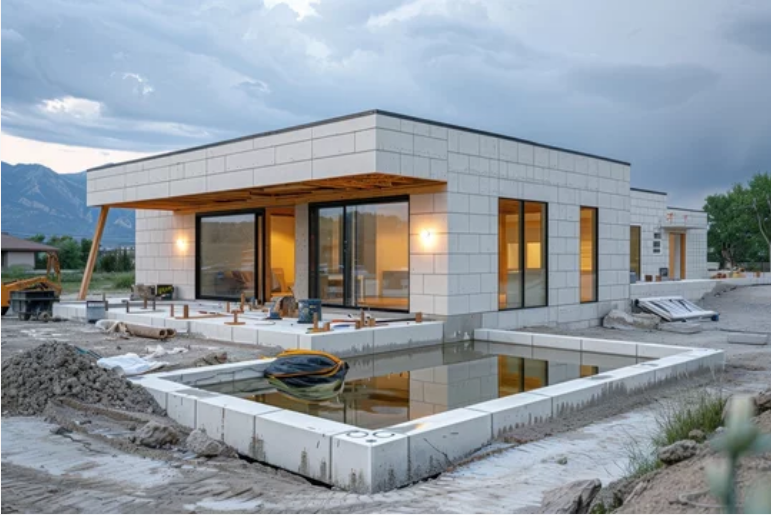
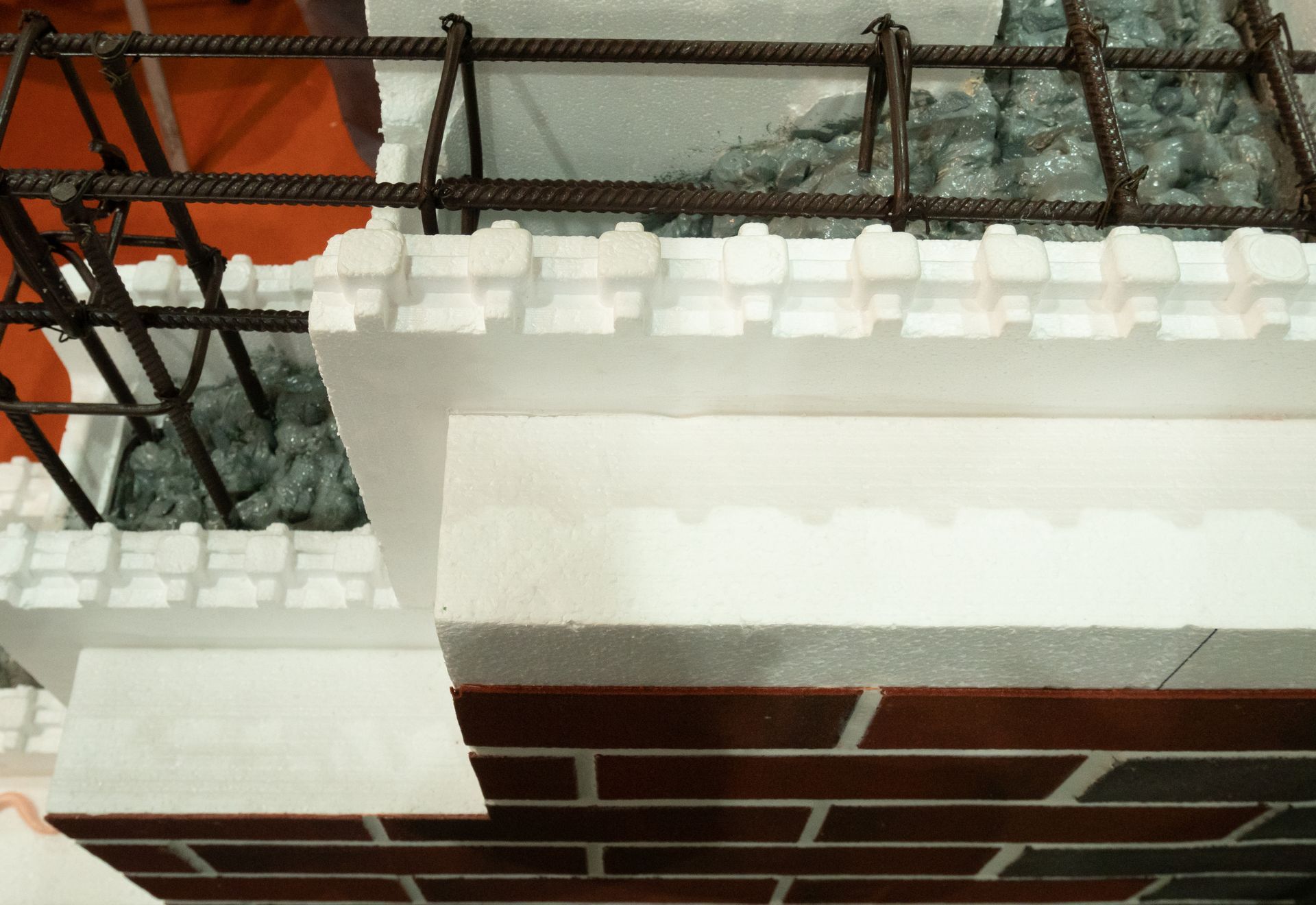
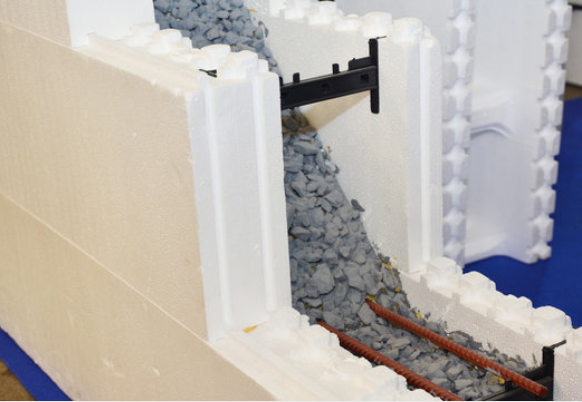

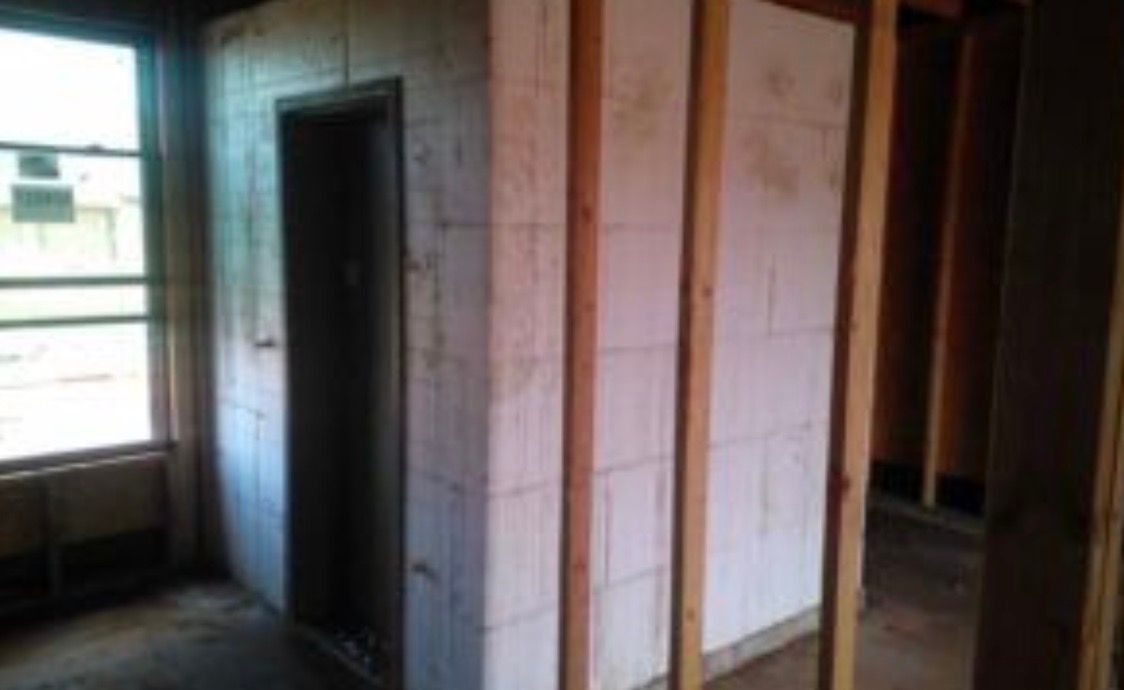
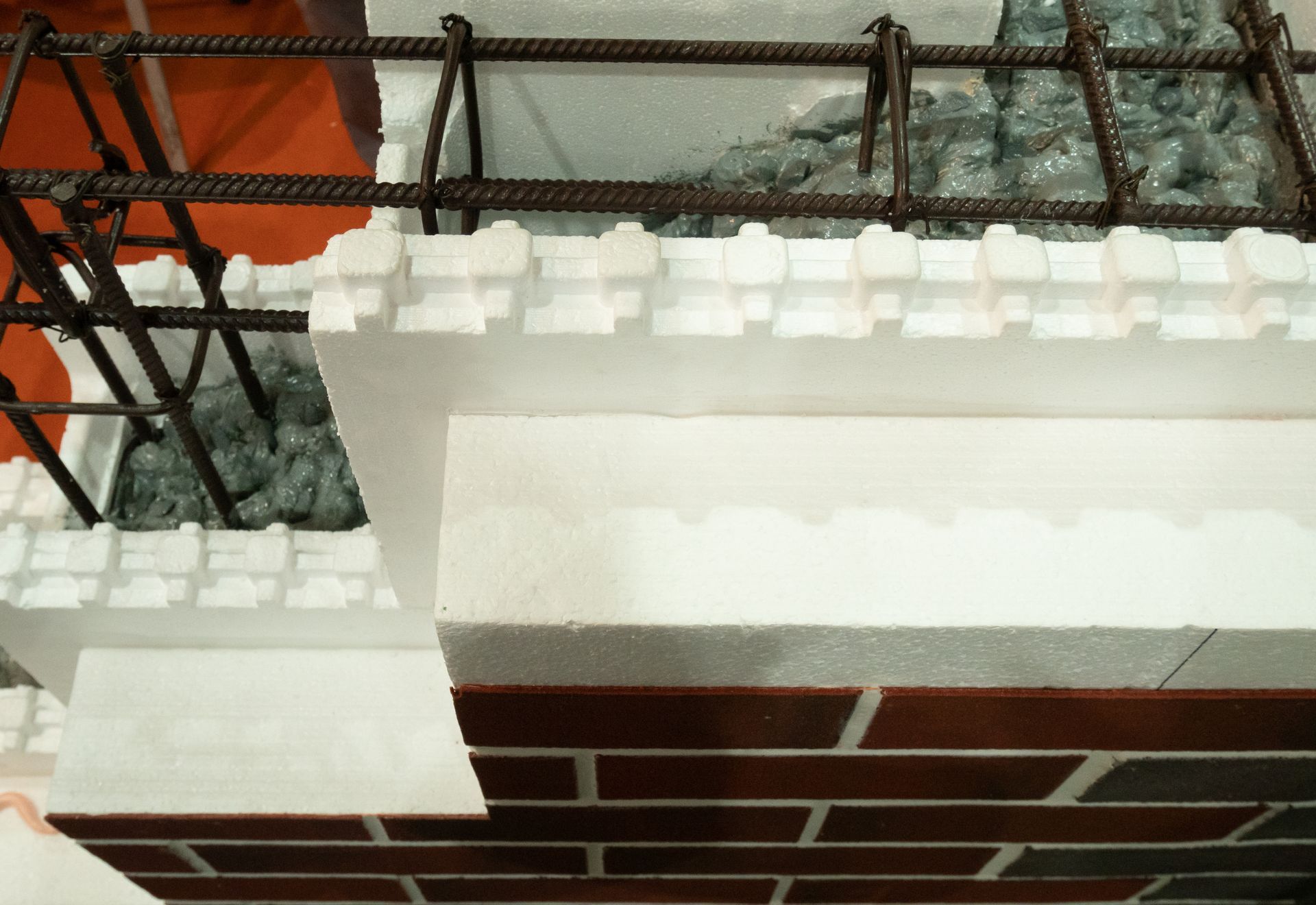
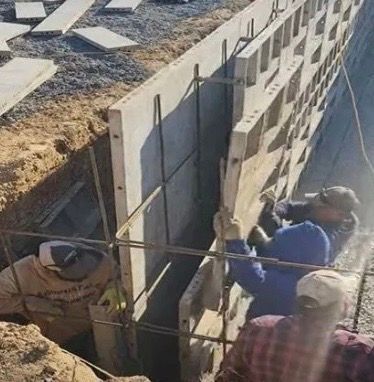
Contact Us
Feel free to reach out to BuildBlock ICF by using the contact form below.
We welcome the opportunity to connect with you and discuss how our innovative solutions can meet your needs.
Contact Us
We will get back to you as soon as possible.
Please try again later.
Copyright. Build Block ICF. All Rights Reserved.


